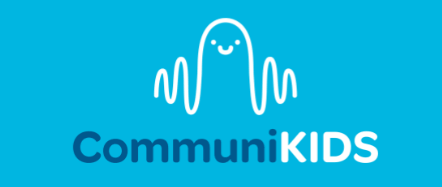Early Intervention – Why It Matters
Some of the key milestones parents are on the look out for are related to communication. From first sounds to first words to first time combining words, each milestone is often monitored closely and celebrated by parents and caregivers. However, some children are late in meeting those milestones, which can lead to concerns.
Early intervention often occurs between 0 – 3 years, but can sometimes occur later in childhood as well. It is an intervention approach designed at building functional language, often focusing on the child being able to communicate using single words and word combinations. Early intervention has a heavy involvement of parents, with speech therapists providing strategies to aid language development at home.
How young is too young?
Many parents who walk through the speech therapy doors often report similar stories – a friend told them their child didn’t speak until they were four; a relative urged the parent not to worry; a GP recommended the parent waits until the child is at least three before accessing speech therapy. Despite these attempts to ease parents’ minds, many remain concerned about their child’s language development. So how young is too young to see a speech therapist?
There is no age limit to speech therapy! It’s also important to remember there is no clear indicators that a child will have a language delay further down the track. Because of this, the ‘wait and see’ approach is never recommended for language development. In determining if your child should see a speech therapist, a few things to consider are:
If your child has met their milestones. It is important to remember milestones are not the average of children that age. They are the lower border of what we would expect for a child of that age. If your child is not reaching early milestones, it can be an indicator that they may need extra support to develop their language. See milestones here.
If your child has a history of ear infections. Hearing difficulties are a big contributor to language delays! If your child has a history of ear infections or fluid build up in the ears, it can have a big impact on the child’s language development as they miss out on weeks or months of exposure to language.
If your child is getting highly frustrated. Children with language delays, whether it be at 12, 15 or 18 months, often get very frustrated at not being able to communicate their needs and wants. This is not only upsetting for the child, it can also be distressing for the family.
If you have concerns. Parents know their children best. If there are concerns regarding your child’s language development, seeking an assessment with a speech therapist is always advised. While not every quiet baby has a language delay, it can be difficult to determine what’s a quiet baby and what is a language delay or disorder. The speech therapist will then either be able to send you away with strategies to work on at home, recommend speech therapy sessions, or refer onto other specialists if required.
The Importance of Early Intervention
Research suggests 70-80% of children with language delays will catch up to their peers. However, there is a significant proportion – 20 to 30%! – who will not, and no clear way to tell who will and who won’t. Early intervention benefits both the child and the family, helping achieve communication success and decreasing frustration. Some of the benefits include:
Receiving therapy in an important stage of brain development. Children develop a large portion of their communication skills between 0 – 3 years. During this window of time, children’s brains are a lot more flexible and are able to learn skills quicker than later on in life.
Building communication skills. Children begin communicating before they are even talking, using things such as body language, crying, laughing and facial expression to communicate what they need and want. Communication is ingrained in our everyday lives from when we are born - without it, everything can be a big challenge. By accessing early intervention, those early communication skills (verbal and nonverbal) can be built on and encouraged in children.
Parent strategies. A key part of early intervention is involvement of the parent, and providing functional strategies for at home and in the community. These strategies are often aimed at easy implementation throughout day to day routines. By working alongside families, intervention results are maximised.
Providing other communication methods. For some children, language may take longer to develop even with speech therapy. Speech therapists can work with children and families to develop non-verbal methods of communication such as visuals or gestures. This can help to reduce frustration and aid children in accessing their needs and wants.
Social involvement. Communication plays an integral part in social interaction from a young age. Children with language delays at a young age can be at risk of struggling to play with their peers. As children get older, the communication expectations in play become more complex. By accessing early intervention, the child can be supported to use both verbal and nonverbal communication skills to interact with their peers.
